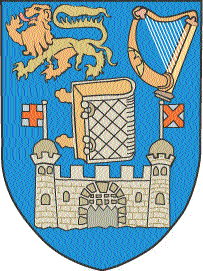
Department of Political Science, Trinity College Dublin
Michael Gallagher
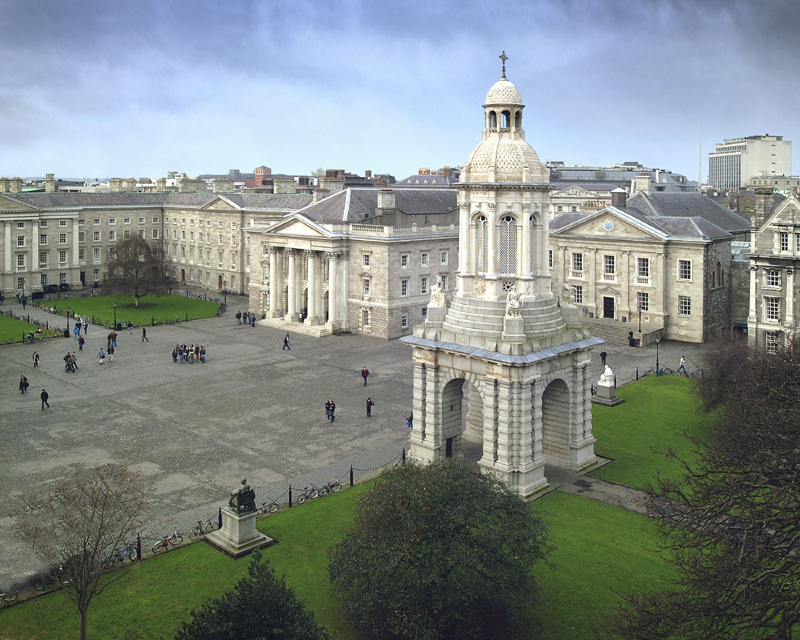
 |
Department of Political Science, Trinity College Dublin Michael Gallagher |
 |
Politics in the Republic of Ireland 7 (PRI7)
web site
This page contains information about the book Politics in the Republic of Ireland, 7th edition (2024), 505 pp. ISBN 978-1-032-35769-0 (hardback), 978-1-032-35765-2 (paperback), 978-1-003-32847-6 (ebook). For full details see the Routledge website.
The book is published by Routledge, part of Taylor and Francis Group, in 3 formats: hardback, paperback, e-book.
This is the seventh edition of the book (PRI7). The previous edition was published in 2018, the fifth edition in 2010, the fourth edition in 2005, the third in 1999, version 2a (a reprint, with minor amendments, of the 2nd edition) in 1996, the second in 1993 and the first in 1992.
What it's about
To quote from the back cover:
"It explains, analyses and interprets the background to Irish government and contemporary political processes. It devotes chapters to every aspect of contemporary Irish government and politics, including the political parties and elections, the constitution, deliberative democracy, referendums, the Taoiseach and the governmental system, women and politics, the position of the Dáil, and Ireland’s place within the European Union.
Bringing readers up to date with the very latest developments, especially with the upheaval in the Irish party system and the implications of recent liberalising referendums, the seventh edition combines substance with a highly readable style, providing an accessible book that meets the needs of all those who are interested in knowing how politics and government operate in Ireland."
In the words of the editors in the Preface:
"Any reader who chooses to compare the seventh edition with its precursors will immediately notice the extent of the changes. The many recent upheavals in the political party system, voting behaviour, patterns of public policy making, constitutional development and political culture require, and receive, due analysis."
Who wrote it
The book has contributions by Fiona Buckley (UC Cork), John Coakley (UC Dublin), Kevin Cunningham (TU Dublin), Michael Gallagher (TC Dublin), Yvonne Galligan (TU Dublin), Catherine Lynch (H Oireachtas), Muiris MacCarthaigh (QU Belfast), Michael Marsh (TC Dublin), Shane Martin (U Essex), Gary Murphy (Dublin CU), Mary C. Murphy (UC Cork), John O'Brennan (Maynooth U), Eoin O'Malley (Dublin CU), Kevin Rafter (Dublin CU), Theresa Reidy (UC Cork), Jane Suiter (Dublin CU), Liam Weeks (UC Cork), and Dawn Wheatley (Dublin CU).
What's new in the 7th edition
Quite a lot, in addition to thorough updating. There are now two new co-editors (Eoin O'Malley and Theresa Reidy) working alongside the in situ long-serving two-person team; there are seven new chapter authors (Catherine Lynch, Muiris MacCarthaigh, Mary C. Murphy, John O'Brennan, Theresa Reidy, Jane Suiter, and Dawn Wheatley); there is a brand new chapter (on direct and deliberative democracy); and for the first time there is full colour printing, with plenty of graphs and visually striking colour photographs.
The front cover
The cover marks a development from the fairly plain two- or three-colour covers of PRI1, PRI2 and PRI2a, the Mark Rothko-inspired covers of PRI3 and PRI4, and the 'twilight of the Celtic tiger' Dublin docklands images, featuring the Custom House or the Calatrava bridge, used for PRI5 and PRI6 respectively. At first sight the cover of PRI7 might seem to embody a clichéd perspective, that of Ireland as 'the Emerald Isle', a predominantly rural country characterised by lush green fields; an outdated and stereotypical representation of an Ireland that has changed greatly over the past half-century. Closer inspection, though, tells a different story. With a striking absence of hedgerows the landscape looks sanitised, almost manicured, with a marked absence of the conditions that make for biodiversity. Far from representing a Gaelic arcadia, the scene is clearly a product of the Anthropocene. Yet there are positives too: the patchwork of small fields fit together, the parts combining and contributing to something greater than themselves, a pattern that has echoes of the world of politics.
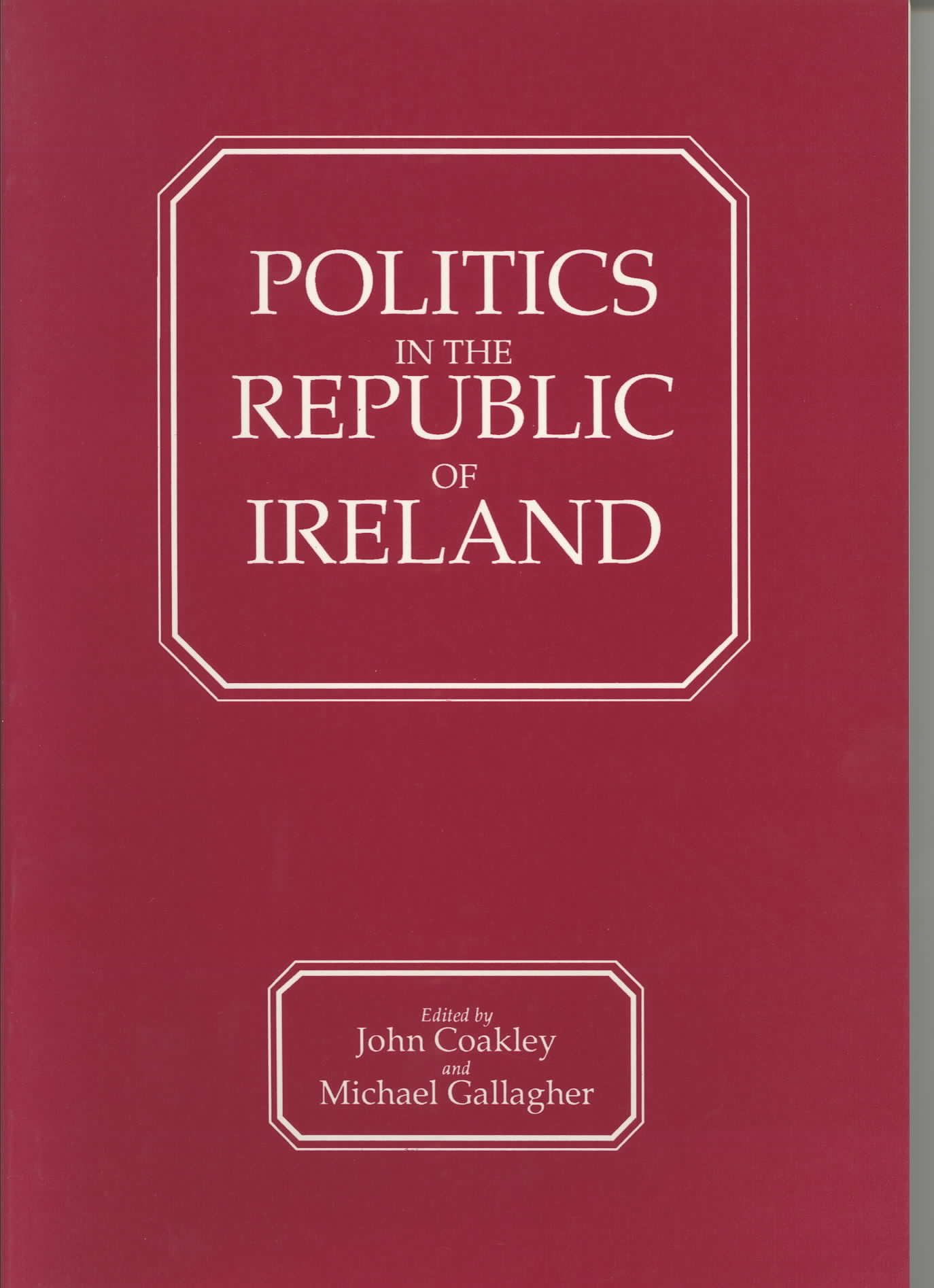 |
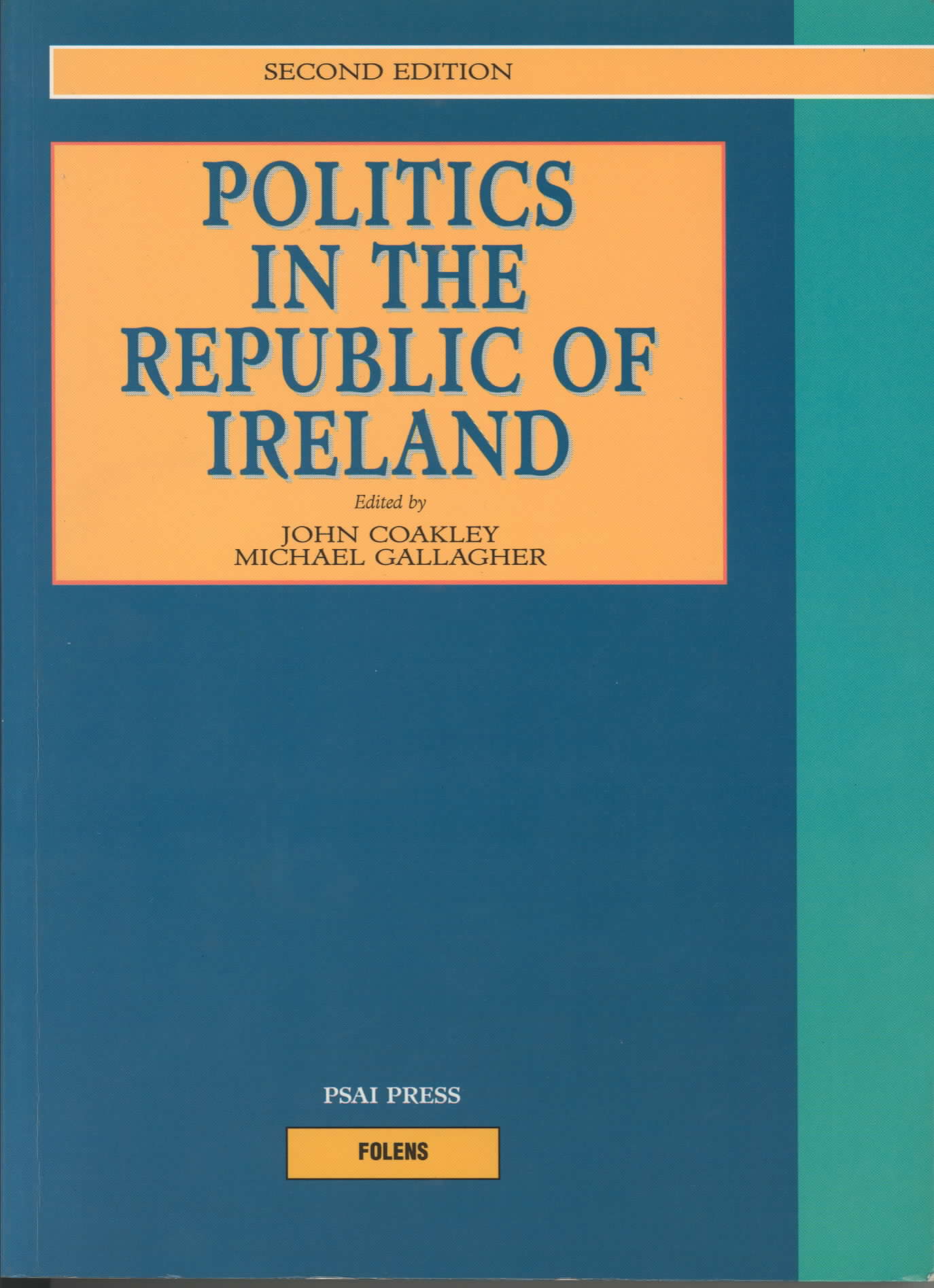 |
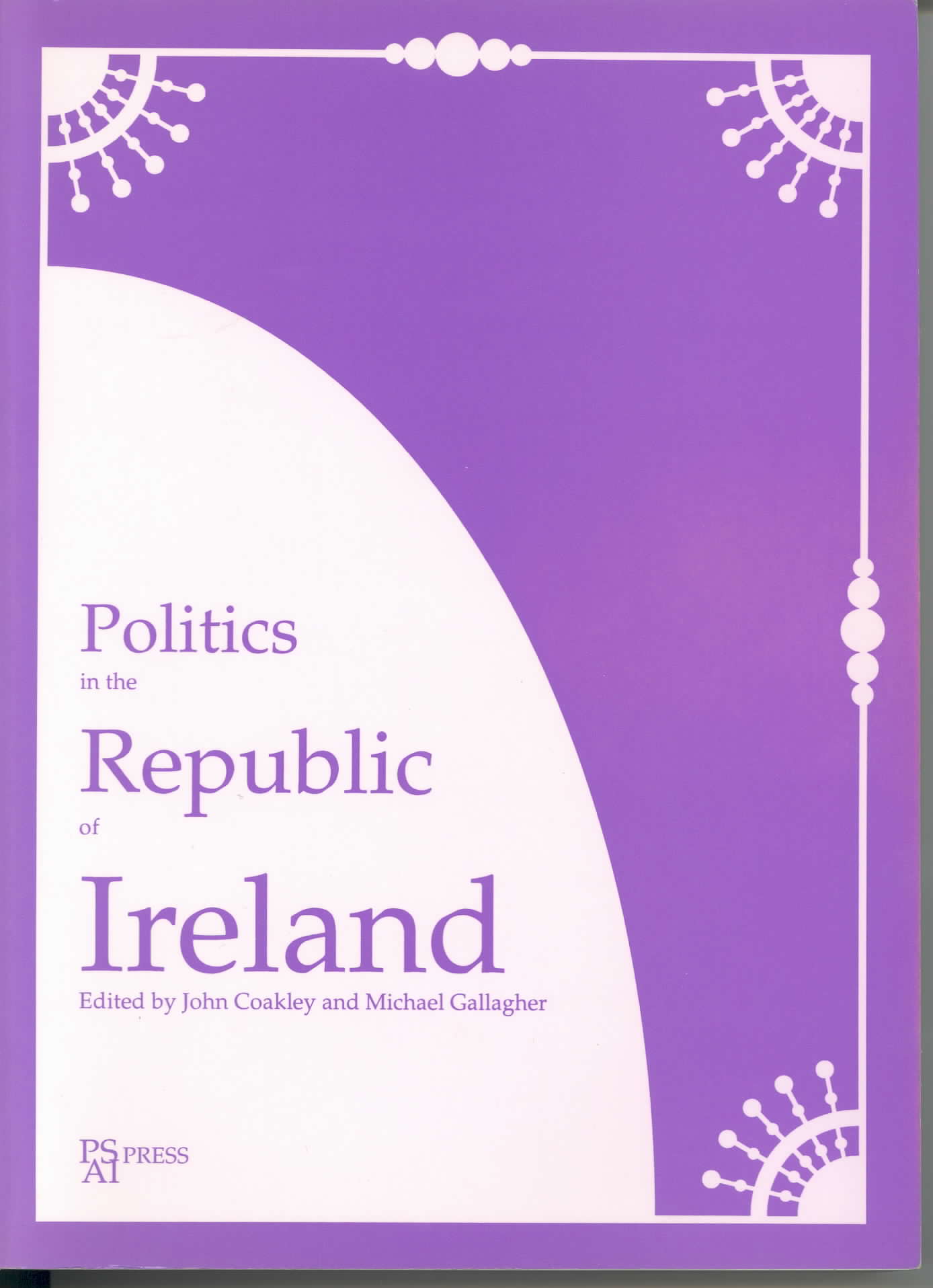 |
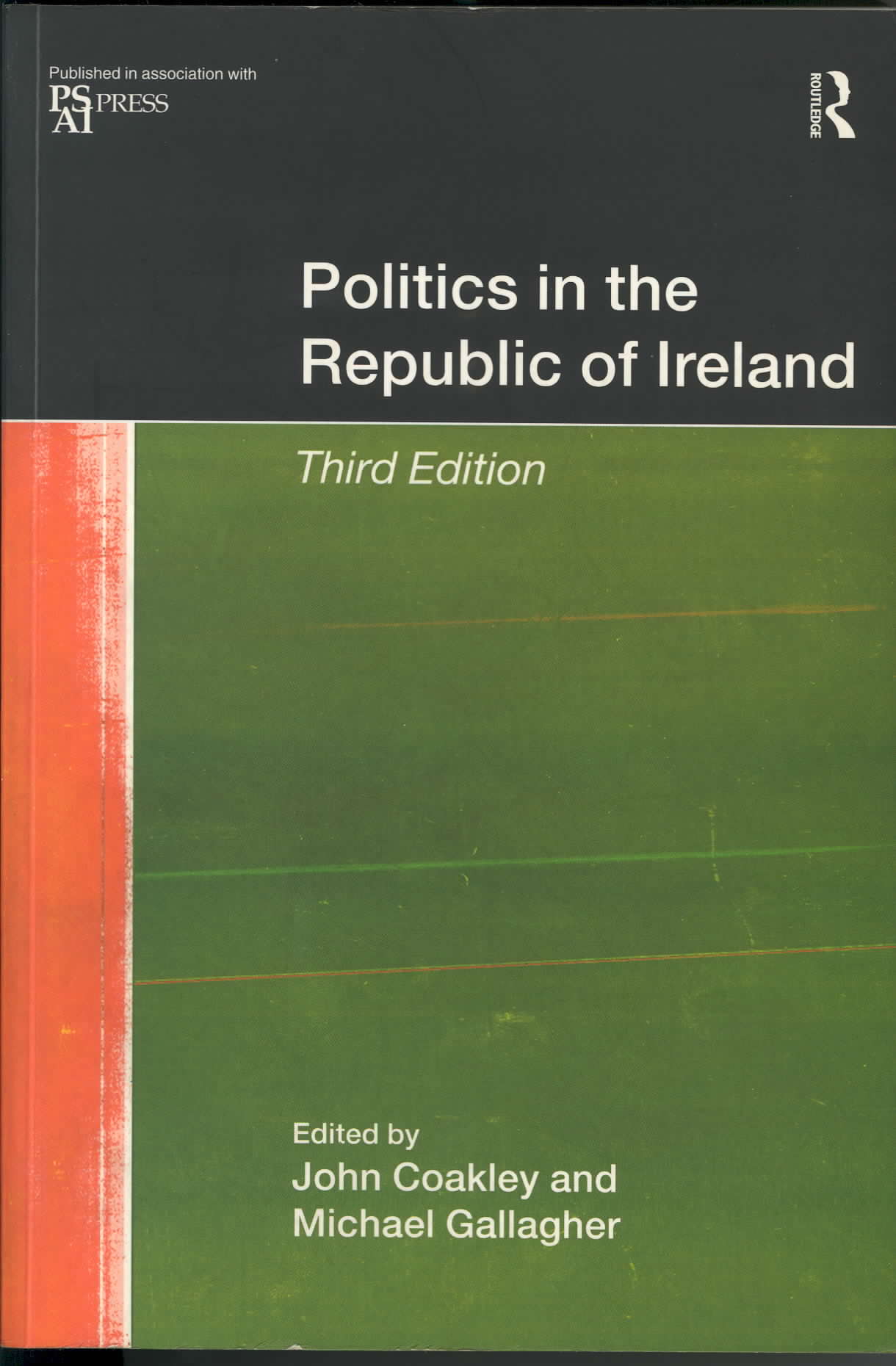 |
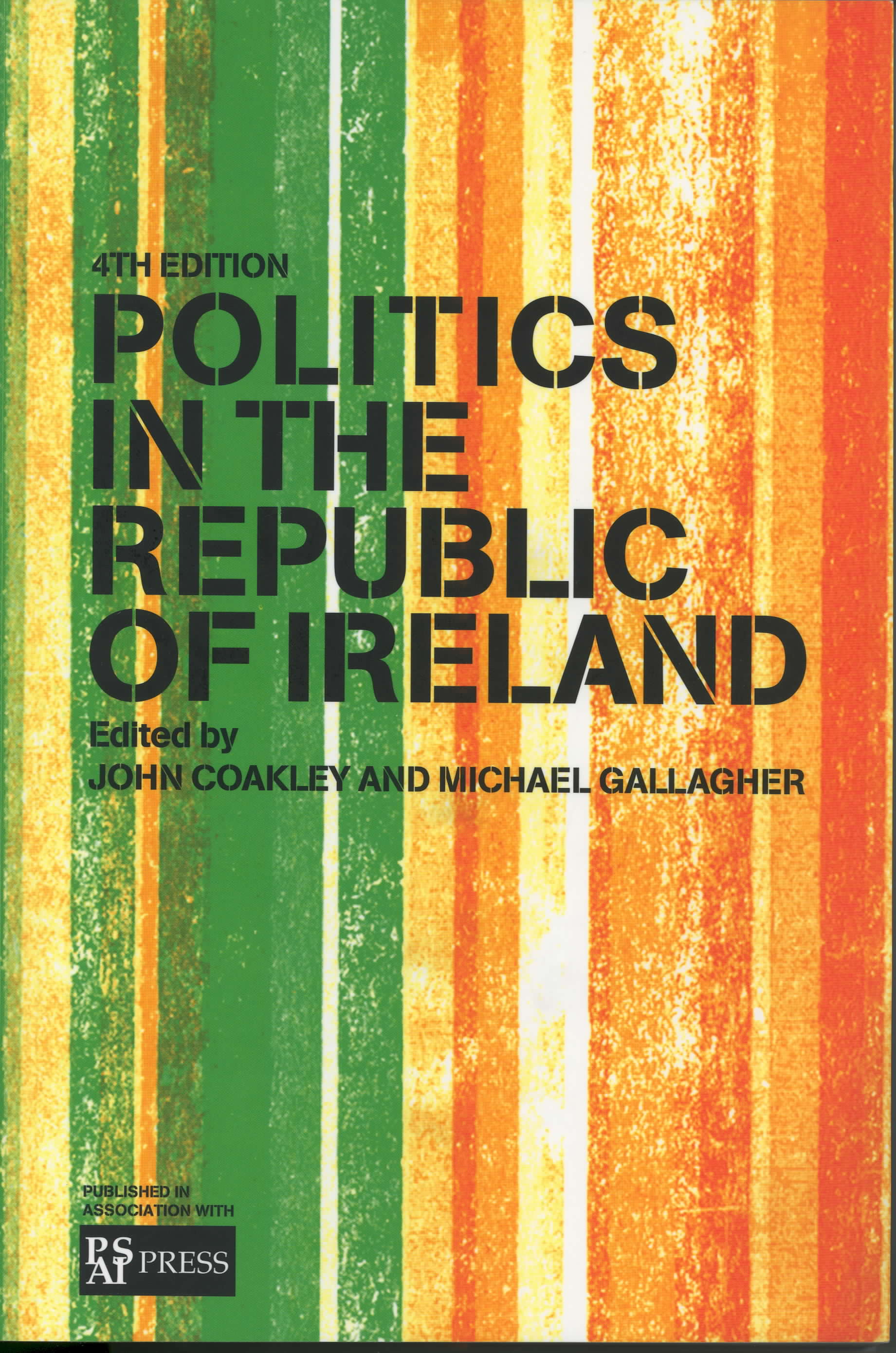 |
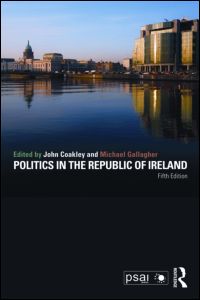 |
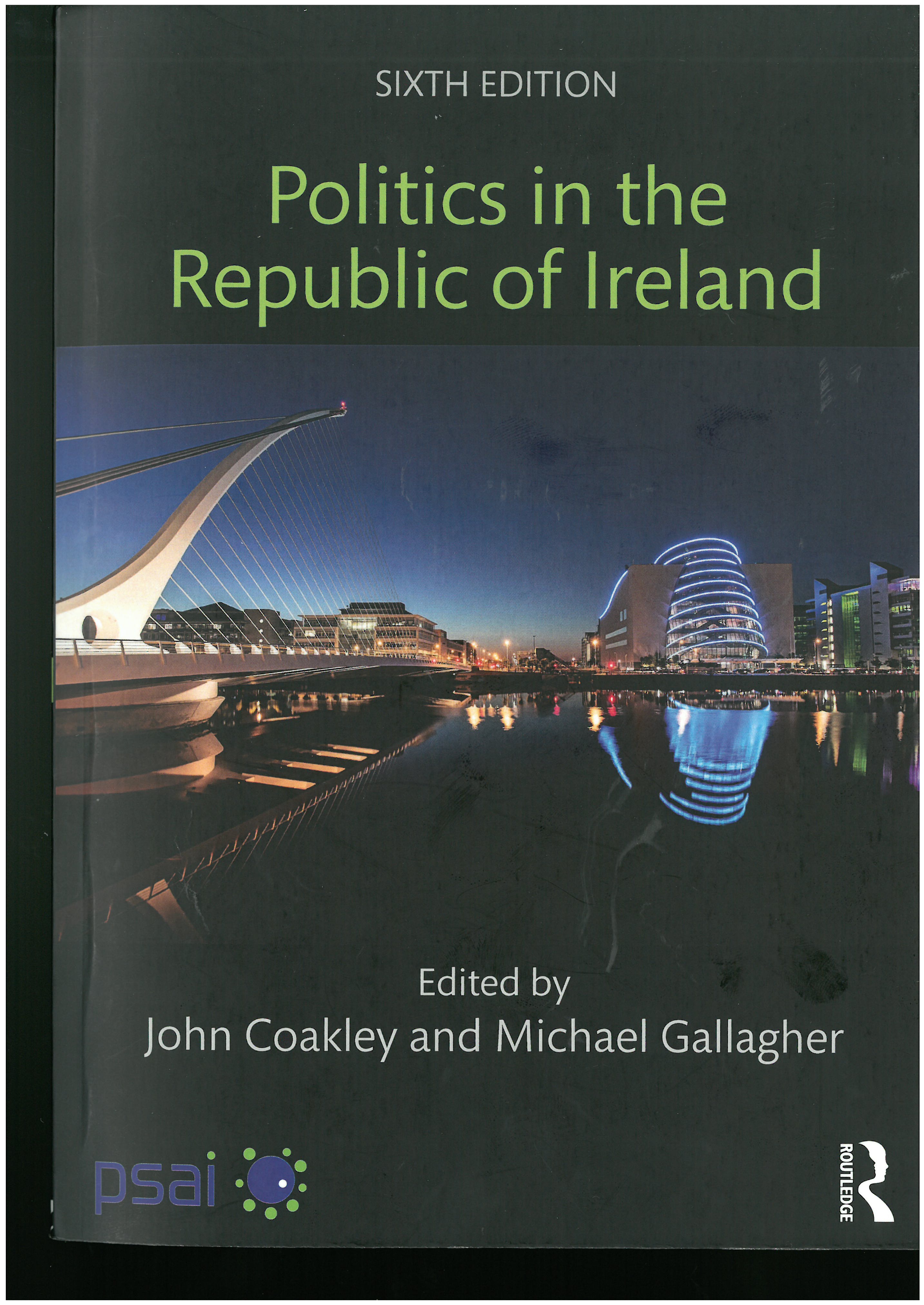 |
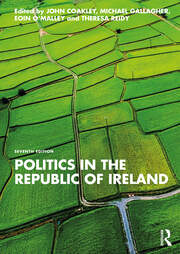 |
Endorsements
'This work is indispensable. Nobody with an interest in Irish politics can do without it.' Margaret O'Callaghan, Queen's University Belfast
'Quite simply this is the best introduction to modern Irish politics that has ever been produced. The editors have assembled an impressive cast of the relevant experts on all the expected themes. Now in its seventh edition this book just keeps getting better and better.' Paul Mitchell, London School of Economics, UK
'Politics in the Republic of Ireland is the place to start for an understanding of Irish politics. This lively new up-to-date seventh edition confirms the book's place at the top of any reading list.' R. Kenneth Carty, University of British Columbia, Canada
More details
The front matter introduces the book and supplies a table of contents together with lists of tables, figures, boxes, and illuminating colour photographs. The index gives detailed information on the subjects covered, from the Abbeylara case to Zelenskyy via abortion, the Anglo–Irish Agreement, Blueshirts, candidate selection, Catholic church, decentralisation, electronic voting, freedom of information, gender quotas, Good Friday / Belfast Agreement, housing, immigration, Irish Republican Army, judicial review, left–right dimension, local government, manifestoes, minority government, monotonicity, nationalism, neutrality, newspapers, oath of allegiance, partition, populism, secularism, television, trade unions, Twitter, violence, voting behaviour, whips, X case, Windsor Framework and many others.
How to order
Details on the Routledge website.
If you have any questions, contact mgllgher (add @tcd.ie)
| Go to TCD home | Political Science home | MG home |
Last updated 29 January, 2024 11:24 AM